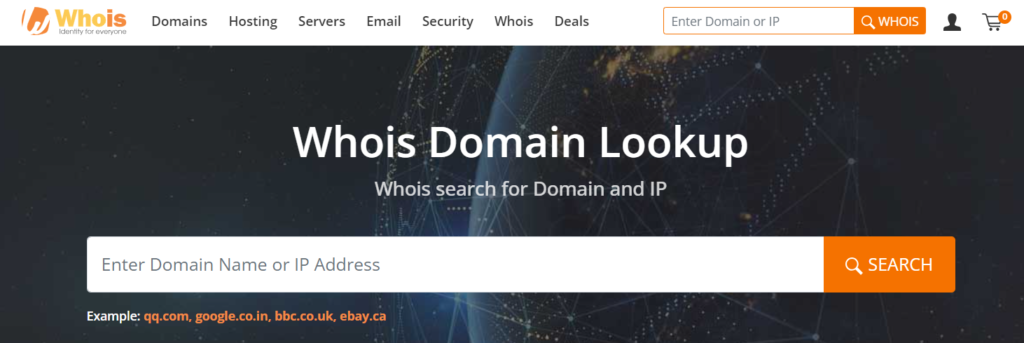The world of expired domains offers exciting opportunities for those looking to build an online presence. Whether you want to boost your SEO, acquire a domain with existing traffic, or invest in a valuable online asset, purchasing expired domains can be a lucrative venture.
However, this process can be complex and requires a solid understanding of various factors that influence a domain’s value, along with potential risks.
This comprehensive guide will provide beginners with practical tips for successfully buying expired domains. Following these tips, you can make informed decisions when selecting valuable domains and avoid common pitfalls.
Key Takeaways
- Understanding Expired Domains: Grasping the basics of expired domains is essential for making informed decisions.
- Research and Due Diligence: Thorough research into domain history, ownership, and backlinks is crucial to assess reputation and potential liabilities.
- Evaluating Metrics: Assessing domain authority, PageRank, traffic volume, and keyword relevance helps determine the domain’s potential.
- Legal Considerations: Ensuring the domain is free from legal issues, penalties, or blacklists is vital for protecting your investment.
- Ongoing Monitoring: After purchase, continuously monitor and optimize the domain’s performance to maximize its value.
Understanding the Basics of Expired Domains
Expired domains are websites whose owners did not renew their domain registration, making them available for purchase by others. These domains can be valuable because they often come with established traffic, backlinks, and sometimes even search engine rankings. However, not all expired domains are created equal, and understanding the basics is crucial before diving into this market.
Why Buy Expired Domains?
- SEO Advantages: Expired domains can carry strong backlinks, which can boost your site’s SEO efforts.
- Established Traffic: Some expired domains have existing traffic that can be redirected to your site.
- Branding Opportunities: Acquiring a domain with a catchy or memorable name can enhance your brand’s visibility.
Risks of Buying Expired Domains
- Legal Issues: The domain might be tied to trademarks or other legal complications.
- Penalties: Search engines could have penalized the domain due to previous unethical practices.
- Low-Quality Backlinks: Poor-quality backlinks can harm your SEO efforts rather than help.
Conduct Thorough Research
Conducting thorough research is akin to doing your homework before making any significant investment. Without proper research, you could end up with a domain that’s more trouble than it’s worth.
Investigate Domain History
Before purchasing, delve into the domain’s history. Use tools like Wayback Machine to see past versions of the website. This will help you understand how the domain was used previously and whether it aligns with your intended purpose.

Evaluate the Domain’s Backlink Profile
A strong backlink profile is one of the key reasons to purchase an expired domain. Use tools like Ahrefs or Moz to analyze the quality and quantity of backlinks. Look for domains with high-quality backlinks from reputable sites, as these can significantly benefit your SEO efforts.
Analyze Domain Metrics
Key metrics to evaluate include:
- Domain Authority (DA): Indicates the overall strength of the domain based on various factors.
- PageRank: Although Google has not publicly updated the domain anymore, understanding the domain’s previous PageRank can still be valid.
- Traffic Volume: Use tools like SimilarWeb to estimate the traffic the domain receives.
- Keyword Relevance: Ensure the domain has keywords relevant to your niche, which can help in search engine rankings.
Look for Relevant and Valuable Domains
When purchasing expired domains, relevance is key. You want a domain that aligns with your business goals and target audience.
Finding Niche Domains
Focusing on niche domains can be highly beneficial, especially if the domain name closely matches popular search terms within your niche. This can improve your site’s visibility and attract a more targeted audience.
Consider the Domain’s Value
Evaluate the domain’s inherent value based on factors like:
- Length: Shorter domains are generally more valuable as they are easier to remember and type.
- Brandability: Domains that are easy to brand (e.g., unique, catchy names) are more likely to succeed.
- Keyword Relevance: Domains with keywords that match popular search terms in your industry can enhance SEO performance.
Evaluate the Domain’s Traffic and Rankings
Understanding the domain’s current traffic and rankings can give you a clearer picture of its value.
Analyze Organic Traffic and Referral Sources
Use tools like Google Analytics or SEMrush to assess the domain’s organic traffic and referral sources. High traffic from reputable sites is a good indicator of a domain’s potential.
Check Search Engine Rankings and SERP Performance
Investigate how the domain ranks for relevant keywords. This can be done using tools like Ahrefs or Moz. High rankings indicate the domain’s strength and potential for future growth.
Assess Social Media Presence and Engagement
Check if the domain has an existing social media presence. A domain with active social media profiles and good engagement levels can be more valuable, as it indicates a loyal audience base.
Verify the Domain’s Ownership and Legality
Legal issues can turn a promising domain into a liability. Ensuring the domain’s ownership and legality is a critical step before purchase.
Conduct a WHOIS Lookup
A WHOIS lookup can provide information about the domain’s current owner, registration details, and contact information. Contact the owner if possible to verify the legitimacy of the sale.

Check for Legal Issues or Trademark Infringements
Ensure the domain doesn’t infringe on any trademarks. Use the USPTO’s Trademark Electronic Search System (TESS) to search for existing trademarks that might conflict with the domain name.
Ensure the Domain is Not Penalized or Blacklisted
Use tools like Google Search Console to check if the domain has been penalized by search engines. A penalized domain can be difficult to rehabilitate and may not be worth the investment.
Negotiate the Purchase and Transfer Process
Once you’ve identified a valuable domain, the next step is to negotiate the purchase and manage the transfer process.
Set a Budget and Determine the Domain’s Value
Determine how much you’re willing to spend based on the domain’s assessed value. Factors like domain age, traffic, and backlinks will influence the price.
Communicate with the Seller and Negotiate the Price
Reach out to the seller and negotiate the price. Be prepared to justify your offer based on the domain’s metrics and potential value. Don’t hesitate to walk away if the price exceeds your budget.
Understand the Domain Transfer Process and Costs
Familiarize yourself with the domain transfer process. This typically involves transferring the domain’s registration from the seller to your account. Be aware of any associated costs, such as transfer fees charged by domain registrars.
Secure the Domain and Protect Your Investment
After acquiring the domain, it’s crucial to secure it and protect your investment.
Update Passwords and Enable Two-Factor Authentication
Immediately update all passwords and enable two-factor authentication (2FA) for the domain registration account to prevent unauthorized access.
Monitor for Suspicious Activities
Keep an eye on any suspicious activities or changes in your domain’s traffic and rankings. Regular monitoring helps detect issues early and protects your investment.
Develop a Plan for Utilizing the Expired Domain
After securing the domain, you need a strategy for making the most of it.
Develop a Marketing Strategy
Create a marketing plan that aligns with the domain’s strengths. For instance, if the domain has high traffic, consider monetization strategies like affiliate marketing, ads, or selling products.
Explore Monetization Options
Monetizing the domain can include several strategies:
- Ad Revenue: Use ad networks like Google AdSense to generate income.
- Affiliate Marketing: Promote products or services and earn commissions on sales.
- Selling Products/Services: Use the domain as a platform to sell your products or services directly.
Monitor and Track the Performance of the Domain
Once your domain is up and running, continuous monitoring is essential to ensure its success.
Use Analytics Tools to Measure Traffic and Engagement
Utilize tools like Google Analytics to track visitor behavior, traffic sources, and engagement metrics. This data will help you refine your strategy and improve your site’s performance.
Monitor Search Engine Rankings and SEO Progress
Regularly check your domain’s search engine rankings and SEO performance. Use tools like Ahrefs or SEMrush to monitor keyword rankings and identify areas for improvement.
Continuously Improve and Optimize the Domain’s Performance
Keep optimizing your site’s content, design, and SEO to maintain and improve its performance. Regular updates and adjustments are key to long-term success.
Consider the Potential Risks and Limitations
Despite the potential benefits, there are risks associated with buying expired domains.
Quality Concerns
An expired domain may come with baggage, such as outdated content, broken links, or poor SEO practices. Ensure you assess these factors before making a purchase.
Legal Issues
Legal disputes or trademark infringements associated with the domain can lead to costly legal battles. Always conduct thorough legal due diligence.
Reputation and Trustworthiness
A domain’s past use can affect its current reputation. Domains previously used for spamming or unethical practices may struggle to regain trust.
Learn from Experts and Seek Professional Advice
The domain buying process can be complex, and seeking expert advice is often beneficial.
Join Online Communities and Forums for Domain Investors
Online communities and forums like NamePros or DNForum are great places to learn from experienced domain investors, share tips, and get advice.
Attend Domain Auctions and Conferences to Network
Participate in domain auctions and industry conferences to network with experts and stay updated on the latest trends in the domain market.
Consult with Domain Brokers or Experts for Guidance
Domain brokers can provide valuable insights and help you navigate the complexities of buying expired domains. They can assist with everything from valuation to negotiation and legal considerations.
Stay Patient and Persistent in Your Domain Buying Journey
The domain-buying process requires patience and persistence.
Understand That Finding the Right Domain Takes Time and Effort
Finding a valuable expired domain doesn’t happen overnight. Be prepared to spend time researching and evaluating different options before making a purchase.
Don’t Rush into Purchasing a Domain Without Proper Evaluation
Avoid making hasty decisions. Take the time to thoroughly evaluate each domain to ensure it meets your criteria and is worth the investment.
Be Persistent and Keep Searching for the Perfect Expired Domain
Persistence is key. Keep searching and refining your criteria until you find a domain that perfectly aligns with your goals.
Conclusion
Buying expired domains offers unique opportunities for building a strong online presence, but it also comes with its challenges. By understanding the basics, conducting thorough research, and evaluating domains carefully, you can make informed decisions that will maximize your investment.
Remember to verify the legal aspects, secure your domain, and continuously monitor its performance. With patience, persistence, and a strategic approach, you can turn an expired domain into a valuable digital asset that contributes to your online success.







